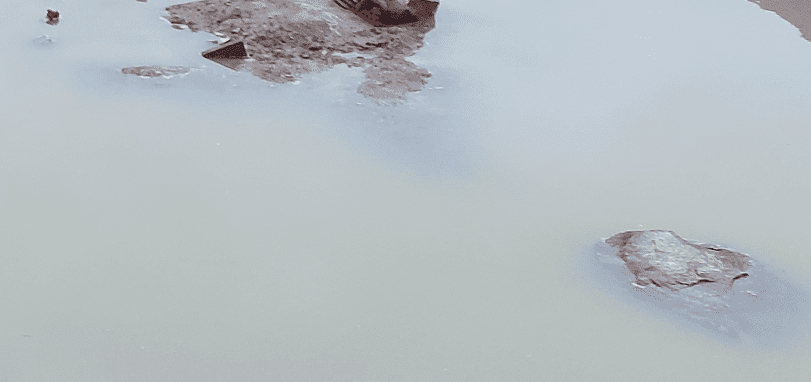How to Clear a Murky Pond
There are different aspects of how to clear a murky pond all depending on the conditions, surroundings and construction.
Pond water clarity can be adjusted in several ways. In the end it all comes down to either biology, mechanics or chemistry - all which can be tampered with. Also muddy water in a pond doesn't necessarily mean something negative. Here we go about different aspects of the water clarity in a pond.
What affects if a pond gets muddy or murky?
Everyone enjoys clear pond water with a blueish surface where you are able to see the bottom fauna and the aquatic wildlife. Many times it can be quite the opposite with a seemingly dark surface and only blurry muck below. Why a pond fail to retain (or gain) the wished clarity can be a result of many things.
Too much of some things...
Most of the time murky water can be the results of having an excess of something, both in the water or in the nearby area.
A surplus of materials will slowly create a bottom sludge, a layer of organic matter, which can originate from:
- Fish or other animals that produce waste
- Leaves or grass (clippings) and alike
- Dead algae/plankton - which if not maintained can worsen the situation
These situations pretty much creates a perfect nursery for plankton or algae to grow and spread into the pond.
Read more: How do I get rid of green pond water?
Or too little of other.
The problems with a muddy pond can also be if something is missing. Often there can be a problem with having too little of:
- Other vegetation (which competes with algae over nutrients)
- Dissolved oxygen
- Bottom cleaning snails or crustaceans
Adding all or some of the above can often be the missing piece(s) to stopping mucky pond water.
Read more: Pond aerator - a must have
Pond type and construction
There are som conditions that could be the problem to begin with. I really mean it - what are the fundamentals of your pond? The problem with pond water clarity could namely very well be from:
- Type of construction
Where earthen farm ponds often has a built-in problem with clarity from the start due to soil conditions. - Shape and design
A heavily meandering pond can have spots or areas with still water and reduced oxygen. - Depth
Deep and dark holes are more prone to collect excess material and are also harder to clean.
Read more: How do I get rid of brown pond water?
Seasonal changes
Last but not least you will have to observe and take into account seasonal changes. A few examples:
Warm yet dark winters could have plants still alive which during darker hours will continue to produce nitrates and carbondioxide.
Early wamth during the spring could kick-start the algae-production at the surface when other vegetation hasn't started growing yet.
Warm summers are almost a given opportunity for algae to grow and overflow a pond.
Heavy rain during the fall can wash away and erode the edges making the pond muddy.

